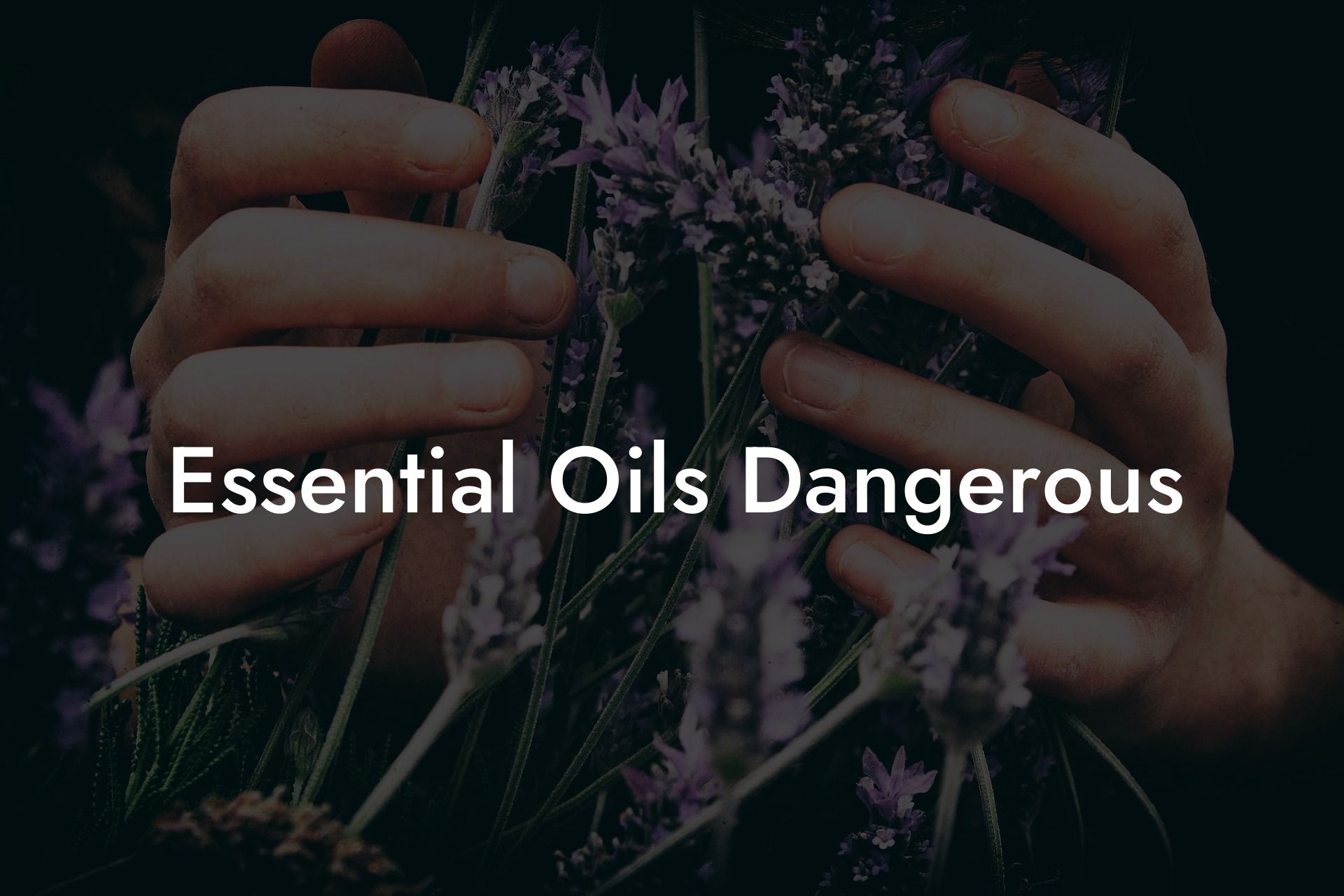Essential oils have grown in popularity as a natural remedy for various ailments, from stress relief to sleep promotion. However, as with any product, it’s important to be aware of potential dangers associated with essential oils. In this article, we dive deep into the risks involved with improper use of essential oils, and how to safely enjoy the benefits these powerful plant extracts have to offer.
Table of Contents
What Makes Essential Oils Dangerous?
While essential oils can provide numerous health benefits, incorrect usage or negligence can lead to adverse effects. Some potential factors that make essential oils dangerous are:
- Purity: Synthetic or low-quality oils can contain harmful chemicals or adulterants which can cause allergic reactions or health issues.
- Concentration: Essential oils are highly concentrated and should never be used undiluted on the skin or ingested without a healthcare professional’s guidance.
- Interactions: Essential oils may interact with medications or other substances, leading to potential side effects or reduced efficiency of the treatment.
- Sensitivities: Some individuals may have increased sensitivity or allergies to specific essential oils, leading to skin reactions or respiratory issues.
Top Dangers of Essential Oils Misuse
1. Skin Irritation
Applying undiluted essential oils directly to the skin can cause irritation, itching, redness, and even burns in some cases. It’s crucial to always dilute essential oils with a carrier oil, such as coconut or jojoba oil, before applying them to the skin.
2. Phototoxicity
Some essential oils, particularly citrus oils like bergamot and lemon, can cause phototoxic reactions when exposed to sunlight, leading to severe skin irritation, burns and blisters. Avoid sun exposure for at least 12 hours after applying these oils to the skin.
3. Inhalation Risks
While the aroma of essential oils can provide therapeutic benefits, excessive inhalation can lead to headaches, dizziness and respiratory problems, especially in people with asthma or allergies. Diffuse essential oils in well-ventilated areas and use only for a limited time.
4. Ingestion Hazards
Ingesting essential oils without professional guidance can pose severe risks, such as liver or kidney damage, digestive issues, and poisoning. Always consult a healthcare expert before considering ingestion of essential oils.
5. Pregnancy and Children
Some essential oils may not be safe for pregnant women or young children, as they can cause complications, hormone imbalances or allergic reactions. Consult a healthcare professional or aroma therapist for guidance on age-appropriate and pregnancy-safe essential oils.
Essential Oils Dangerous Example:
Imagine Sarah, a busy working mother who experienced high levels of stress daily. She decided to try essential oils to help her relax after long days. She purchased a lavender oil, known for its calming properties, and applied it undiluted directly onto her wrists.
Soon after, Sarah noticed her skin becoming red, itchy and irritated. Concerned, she researched further and learned about the importance of diluting essential oils with carrier oils before applying them to her skin. Dilution not only minimizes skin-related risks but also prolongs the benefits of the essential oils.
Knowledge is power – and when it comes to essential oils, being informed of potential dangers will help ensure a safe experience for you and your loved ones. By understanding the precautions and proper practices surrounding essential oil usage, you can confidently enjoy the benefits these natural plant extracts have to offer.
Feel free to share this article with friends and family to raise awareness of the potential risks of essential oils. If you’re interested in learning more, our Oshu Oils blog offers a comprehensive guide to essential oils and aromacology. Explore our range of artisan essential earth oils, expertly crafted to bring balance to modern lifestyles, and elevate your wellbeing today.





















